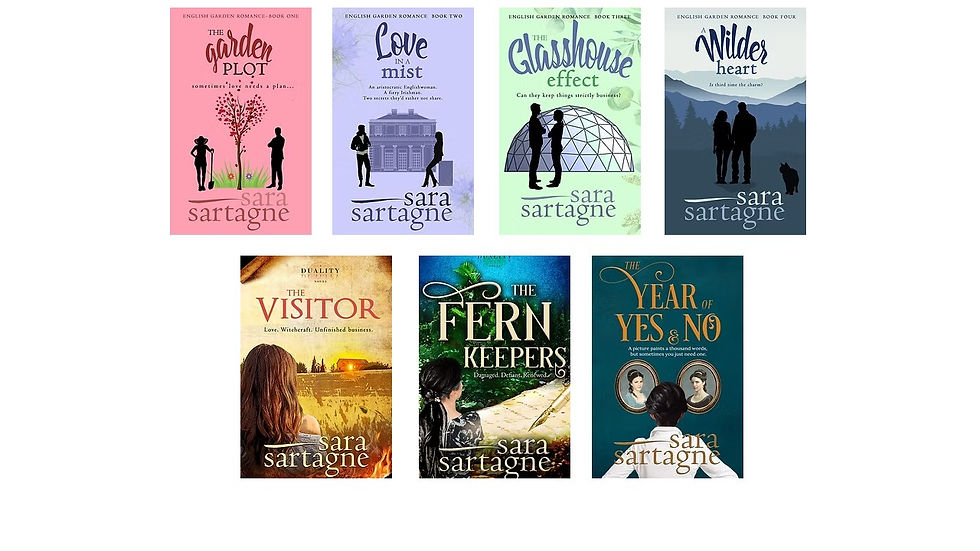Women's Fiction
- Allie Cresswell

- Jul 3, 2023
- 3 min read
When you self-publish you are asked to place your book into up to two categories or genres. There are a finite quantity of these and it can be tricky to fit your book neatly into just two of them.
The Cottage on Winter Moss, for instance, is a dual timeline novel, but that isn’t a genre that is offered up. Do I list it as ‘contemporary’ or ‘historical’? It’s BOTH! It also has romantic elements and some suspense. What is a writer to do?
There is a supernatural element to the book, so I picked ‘ghost’ as one of my options, (only to find, to my dismay, that it had been placed into the ‘Horror’ category instead.) The second genre I chose was Women’s Fiction.
Women’s Fiction is defined thus: Women's fiction is an umbrella term for women centered books that focus on women's life experience that are marketed to female readers, and includes many mainstream novels or women's rights books. It is distinct from women's writing, which refers to literature written by (rather than promoted to) women. (Wikipedia)
You can see how broad a genre this is by looking at the recent winners of the women’s prize for fiction.

I’d say my book has a strong claim to a place on this illustrious bookshelf. Its protagonist is a woman who has been successful in her field and yet is no paragon. She is flawed, poor at relationship-choices, impetuous to the point of being foolhardy. She writes a story that has at its heart a family of feuding brothers, but it is not so much the brothers who interest her as the hapless women who get embroiled in their lives. These women, in their subsequent generations, embody the journey of all women in the last century or so. Her story begins in 1906 with a poor, downtrodden wife of a staunch Methodist and ends in 2019 (or thereabouts) with a female Vicar. A girl in the 1920s is packaged up for marriage like a parcel on the shelf of a shop. Two generations later her descendant is a small business-woman who owns and runs a shop. During and after the second World War marriage choices for girls were few - so many men had been killed or suffered devastating injury. Rose and the girls of the Land Army despair of finding marriage partners and Rose accepts the proposal of a man twice her age. In the modern day, my protagonist, at thirty-five years-of-age, is still unmarried and enjoys the luxury of being able to pick and choose between prospective men, or to choose singleness. I think this is a book that women of many ages will enjoy but I wouldn’t like to think that my readership will be exclusively women. My husband - though biased - loved the book, especially the ending, which he says has stayed with him. He is one of five brothers and he knows what it is to be in perfect accord with them as well as what it is to fall out. The aspects of sibling rivalry resonated with him, and the strong imperative for a boy either to follow in his father’s footsteps or to break away and do things utterly opposite. The brothers’ story-line has strong themes of reconciliation and forgiveness that I hope will speak to male readers.
I’d be delighted to hear from women and men about what they think of The Cottage on Winter Moss.







Comments